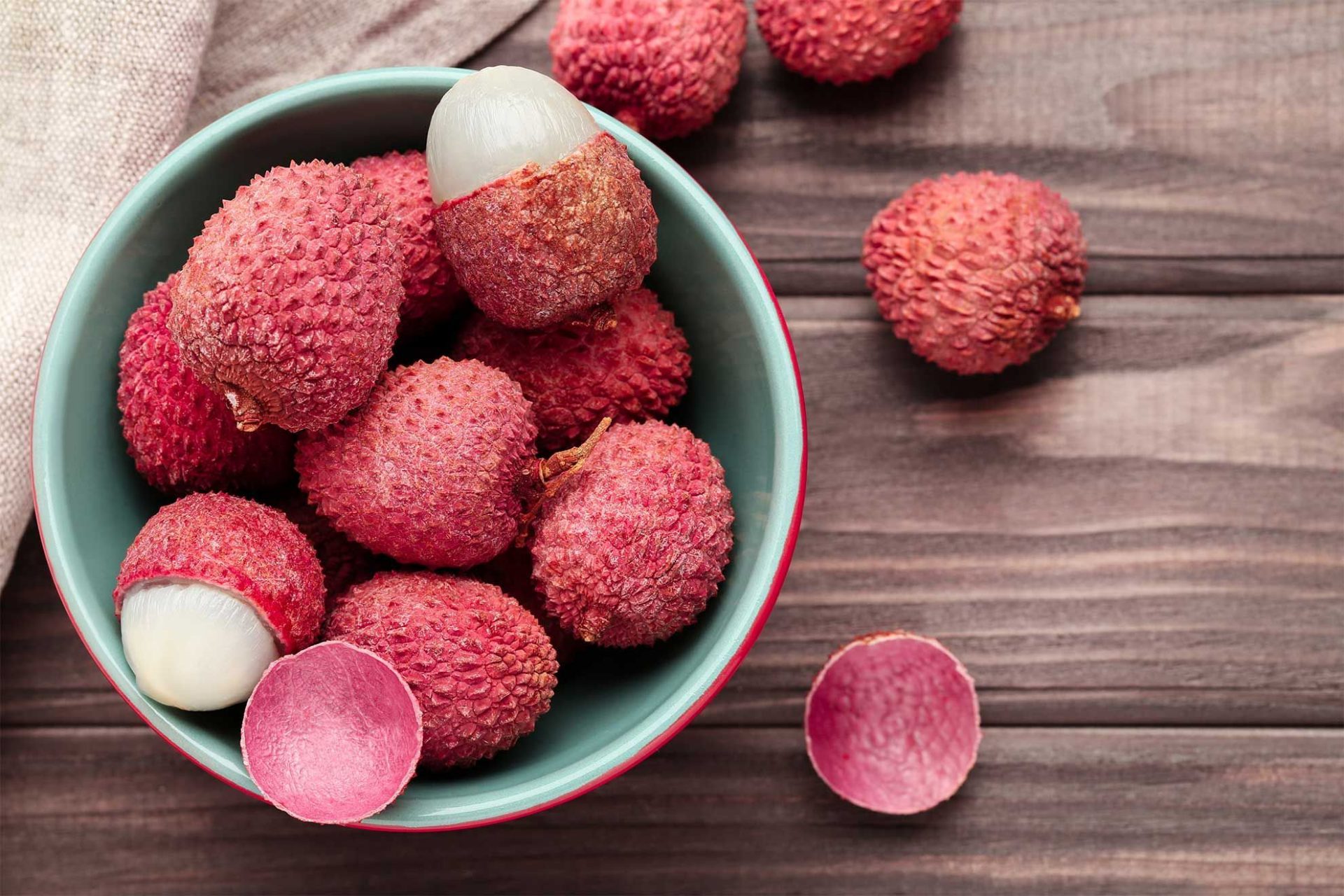
What is the health benefit of eating lychee?
အောက်ဆုံးထိ ဆွဲကြည့်ပေးကြပါ ခင်ဗျာ
Lychee, litchi, and lichee all refer to the same tropical fruit that offers healthy vitamins, minerals, and antioxidants. Adding this fruit into your diet is a healthy choice.
The lychee (Litchi chinensis) — also known as litchi or lichee — is a small tropical fruit from the soapberry family.
Other popular fruits in this family include rambutan and longan.
Lychees are grown in subtropical regions throughout the world and especially popular in their native China, as well as Southeast Asia.
Known for their sweet and flowery flavor, they’re typically eaten fresh and sometimes used in ice creams or processed into juice, wine, sherbert, and jelly.
They’re a good source of several vitamins, minerals, and healthy antioxidants.
Lychees have an inedible, pink-red, leathery skin, which is removed before consumption. The flesh is white and surrounds a dark seed in the center.
Nutrition Facts
Lychees are mainly composed of water and carbs — which make up 82% and 16.5% of the fruit, respectively.
A 3.5-ounce (100-gram) serving of fresh lychees provides the following nutrients. The table below shows the main nutrients in fresh lychees:
- Calories: 66
- Protein: 0.8 grams
- Carbs: 16.5 grams
- Sugar: 15.2 grams
- Fiber: 1.3 grams
- Fat: 0.4 grams
Carbs and Fibers
Besides water, lychees are mainly composed of carbs.
A single lychee — either fresh or dried — contains 1.5–1.7 grams of carbs.
The majority of the carbs in lychees comes from sugars, which are responsible for their sweet taste. They’re relatively low in fiber.
Vitamins and Minerals
Lychees are a decent source of several vitamins and minerals, including:
- Vitamin C: The most abundant vitamin in lychees. One lychee provides around 9% of the Reference Daily Intake (RDI) for vitamin C.
- Copper: Lychees are a decent source of copper. Inadequate copper intake may have adverse effects on heart health.
- Potassium: An essential nutrient that may improve heart health when eaten in sufficient amounts.
Possible Health Benefits
The health effects of lychees have not been studied yet.
However, including a variety of fruits and vegetables in your diet may improve your health and reduce your risk of several chronic diseases.
Lychees contain several healthy minerals, vitamins, and antioxidants, such as potassium, copper, vitamin C, epicatechin, and rutin. These may help protect against heart disease, cancer, and diabetes.
Animal studies also indicate that lychee extract may help fight liver cancer.
Still, further studies are needed to confirm the health benefits of lychees in humans.
Adverse Effects and Individual Concerns
When eaten in moderation as a part of a healthy diet, lychees do not have any known adverse health effects.
However, lychees have been associated with brain inflammation in South and Southeast Asia.
Whether lychees are responsible is not entirely clear, but scientists have hypothesized that the toxin hypoglycin A may be responsible. Further studies are needed.
Additionally, lychees may cause an allergic reaction in rare cases.
- What to Know About Being Unable to Control Emotions

- Top 7 AI-Powered Wearables for Longevity and Biohacking in 2026

- Beginner’s guide to cryptocurrency trading strategies

- Hippies: The 1960s Youth Movement That Redefined Freedom, Peace, and Love

- What is soft skill? Definition, Importance, and Examples

- Get Your Vitamin P: Why Pleasure Matters When It Comes to What You Eat


Thank For Lychee & song
Good morning all guys ❤️🌞
Thanks
thanks
Lychee
My favourite! Thank you…
👍💞♥️good👍
Great! Thanks♥
If you eat a lot of lychee, does it cause brain damage?
Thank a lot of your sharing knowledge.Like lychee.
Nice song 🎶🎼
💝💝💖
Thanks for all.
Thanks for sharing ❤️
Lychee are really nice to eat if someone has already peeled them for you
Thanks millions C4A team for new article and nice song 🎵
My favorite lychee fruit.
Thanks for your new article and sweet lyrics✨🎶🎧💜
Be healthy and safe 🙏
I love lychee…. thanks again for new article and lovely song 🎧
Good morning all guys ❣️
Thanks admins for sharing about lychee and for golden song ❤️💕💖
Thanks to the admins for always posting good articles and for the songs